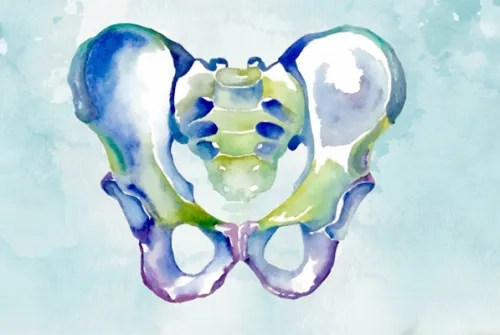Alo Yeditepe
Alo Yeditepe
What is Pelvic Floor? What are Their Duties?
What Is Pelvic Floor Muscle, Why Is It Important, What Roles It Play?
Pelvic floor muscles are the muscle group located at the base of the pelvic bone, known as the pelvis, which has significant roles in micturition, defecation, and sexual functions. In addition, it supports the bladder, uterus, and rectum from our organs in the pelvis region from below and acts as a lever.
How Does It Affect the Psychological and Sociological Status and Quality of Life?
Problems in the pelvic floor muscles cause a decrease in the quality of life by restricting the activities that people perform in their daily life. The constant feeling of discomfort negatively affects social, work, and family relations and may cause the person to isolate himself/herself from society.
Furthermore, problems may arise in the sexual life of individuals due to pelvic floor disorders. In this case, people who cannot talk and share their problems with others may feel lonely. All these experiences can also create some psychological problems.
Approach to Healthy People
In pelvic floor rehabilitation, applications for preventive purposes are of great importance before diseases occur. For this, first of all, people should be informed about the pelvic floor, and then possible risk factors should be evaluated. After examining individual characteristics such as family history, social environment, work life, daily life activities, and genetic factors, pelvic floor exercises should be taught and information should be given about how to adapt them to daily life. At this point, the most crucial step is to provide the necessary information and training.
This content was prepared by Yeditepe University Hospitals Medical Editorial Board.
”
See Also
- What is Whooping Cough? The Importance of Whooping Cough Vaccination During Pregnancy
- Contraceptive Methods: Birth Control and Effective Protection Options
- What is Ovarian Reserve?
- Uterine Polyps, Symptoms and Treatment
- Genetic Diagnosis in IVF Treatment
- What Happens at 3rd Weeks of Pregnancy?
- What Happens at 2nd Week of Pregnancy?
- What is Endometriosis? What are the Symptoms of Endometriosis?
- What is Hormone Replacement Therapy (HRT)? How is HRT Performed?
- Hormonal Disorder Symptoms and Treatment
- What is Ureaplasma? How is Ureaplasma Treatment Done?
- The Most Common Diseases in Women
- What is Hysteroscopy? Hysteroscopy Usage Areas
- What is Myoma? Myoma Symptoms and Treatment
- Early Menopause and Ovarian Failure Can Be Prevented
- What is Laparoscopic Surgery in Gynecology?
- Menopause Symptoms and Menopause Treatment
- Polycystic Ovary Syndrome and its Treatment
- Electromagnetic Stimulation in the Treatment of Endometriosis and Infertility
- How Does Working Life Affect Prospective Mothers?
- Causes of Female Infertility
- The Use of Non-Inpatient Closed Surgery is Increasing in Gynecological Diseases
- Chronic Pelvic Pain
- What is Polycystic Ovary Syndrome/PCOS?
- Postpartum Period
- 7 Effective Tips Against Urinary Incontinence
- What is Menopause? When Does Menopause Age Begin? What are the Symptoms of Menopause?
- The Chance of Becoming a Father Increases with Microchip Technology
- Thanks to the Ovarian Rejuvenation Method, She Counts the Days for Birth!
- Tests That Need to Be Performed During Pregnancy
- Which Tests Should Expectant Mothers Not Neglect? What Tests Should Be Done While Pregnant?
- Some Patients Go Through Menopause Even at the Age of 15
- Stress Disrupts the Menstrual Cycle
- Myomas Can Grow During Pregnancy
- Useful Bacteria Increases IVF Success
- Polycystic Ovary Syndrome Can Occur If the Bacteria in the Gut Are Not Functioning Well
- Imaging Methods During Pregnancy
- After 16 Years, She Wanted to Be a Mother Again; She Experienced the Shock of Her Life
- These Diseases Affect Women Differently Than Men
- Beware of Chocolate Cyst! It Affects 1 in 10 Women
- Causes of Male Factor Infertility
- The Effect of Advanced Age on IVF Treatment
- Infertility
- Polycystic Ovary Syndrome
- Early Menopause
- Blocked Fallopian Tube
- Vaginismus
- Low Ovarian Reserve (AMH)
- Which Methods Increase Success in Treatment of Infertility?
- Intrauterine insemination (IUI)
- Microinjection
- Egg Cryopreservation
- Assisted Hatching
- Micro-chip
- Pre-implantation Genetic Diagnosis
- Thyroid Diseases During Pregnancy Affect the Baby as Much as the Mother
- Urinary Tract Infections Can Be A Sign Of Menopause
- 10 Overlooked Signs of Menopause
- Endometriosis
- Co-Culture
- Ovarian Rejuvenation / PRP
- As Average Life Expectancy Increases, This Problem Will Be Seen More
- 'Early Age' Warning for Egg Freezing Procedure
- Beware, These Risks Increase After Menopause!
- This Problem Ruins the Lives of One in Every 10 Women
- Getting Cancer Treatment Does Not Stop You from Having Children!
- Prof. Dr. Attar: Endometriosis Can Be Associated With Some Chronic Diseases
- What Is the Period of Fertility? What Tests are Performed for Fertility?
- What Happens at 38 Weeks of Pregnancy?
- What Happens at 37 Weeks of Pregnancy?
- What Happens at 36 Weeks of Pregnancy?
- What Happens at 35 Weeks of Pregnancy?
- What Happens at 34 Weeks of Pregnancy?
- What Happens at 33 Weeks of Pregnancy?
- What Happens at 32 Weeks of Pregnancy?
- What Happens at 31 Weeks of Pregnancy?
- What Happens at 30 Weeks of Pregnancy?
- What Happens at 29 Weeks of Pregnancy?
- What Happens at 28 Weeks of Pregnancy?
- What Happens at 27 Weeks of Pregnancy?
- What Happens at 26 Weeks of Pregnancy?
- What Happens at 25 Weeks of Pregnancy?
- What Happens at 24 Weeks of Pregnancy?
- What Happens at 23 Weeks of Pregnancy?
- What Happens at 22 Weeks of Pregnancy?
- What Happens at 21 Weeks of Pregnancy?
- What Happens at 20 Weeks of Pregnancy?
- What Happens at 19 Weeks of Pregnancy?
- What Happens at 18 Weeks of Pregnancy?
- What Happens at 17 Weeks of Pregnancy?
- What Happens at 16 Weeks of Pregnancy?
- What Happens at 15 Weeks of Pregnancy?
- What Happens at 14 Weeks of Pregnancy?
- What Happens at 13 Weeks of Pregnancy?
- What Happens at 12 Weeks of Pregnancy?
- What Happens at 11 Weeks of Pregnancy?
- What Happens at 10 Weeks of Pregnancy?
- What Happens at 9 Weeks of Pregnancy?
- What Happens at 8 Weeks of Pregnancy?
- What Happens at 7 Weeks of Pregnancy?
- What Happens at 6 Weeks of Pregnancy?
- What Happens at 5 Weeks of Pregnancy?
- What Happens at 4 Weeks of Pregnancy?
- What Happens at 1st. Weeks of Pregnancy?
- Considerations for Embryo Transfer
- What Causes Menstrual Irregularity, How Is It Treated?
- Success in IVF after 43 Decreases to Five Percent
- Pregnancy Cholestasis
- Does Pregnant Coronaviruses Affect?
- Most Frequently Asked Questions During Pregnancy
- Untreated Genital Problems Can Cause Urinary Incontinence
- 1 in 10 Women Have This Problem; It Can Lead To Infertility
- Effective Results Can Be Achieved with PRP in Women with Low Egg Count
Alo Yeditepe









